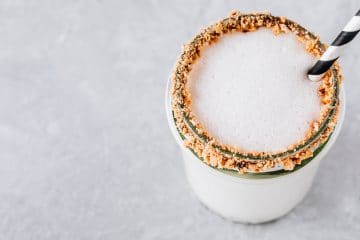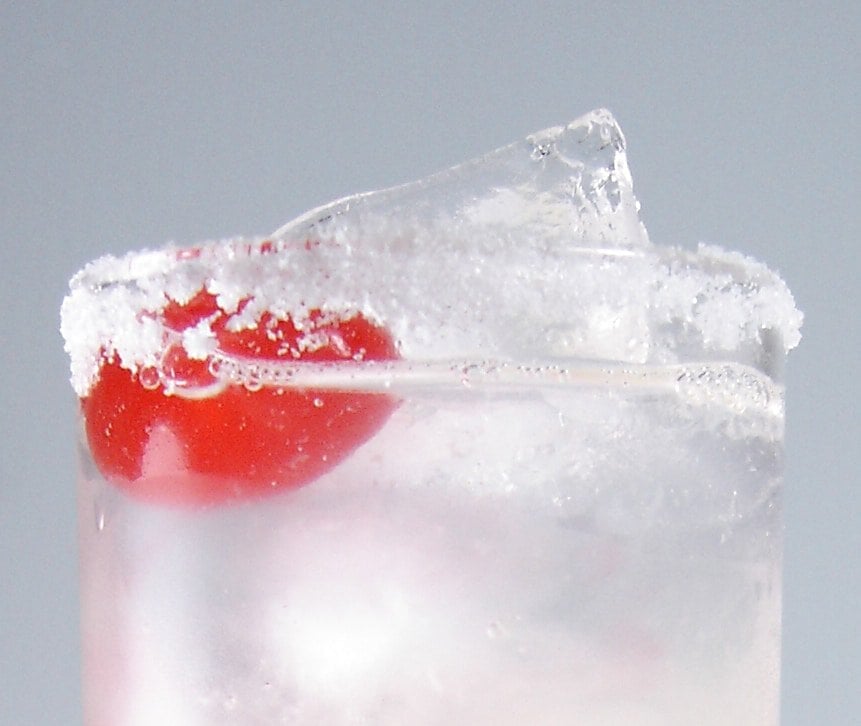Since this is a site dedicated to all things drink related, and milk is a delicious drink, I should probably tackle the debate over raw milk. This is an interesting topic because it encompasses science, politics, health and flavour and I have become increasingly interested in the future of food. But let’s talk about milk.
Louis Pasteur was one of the greatest scientists in human history. His research on germ theory and vaccinations has probably saved or extended billions of lives. He developed the process of heat treating food and beverages to kill off bacteria which help prevent spoilage and foodborne illnesses. This process was named after Pasteur and was called pasteurization.
For well over a century pasteurization was considered an important aspect in food safety, though it was not practised universally around the globe, but the potential health hazards of raw milk were recognized globally.
From 1998 to 2011 the CDC has reported that, among dairy product outbreaks, 79% or 148 incidents involved raw milk. These resulted in 2,384 illnesses, 284 hospitalizations, and 2 deaths. Most of these illnesses were caused by Escherichia coli, Campylobacter, Salmonella, or Listeria. The most serious part was that 82% of the outbreaks involved at least one person younger than 20 years old. Raw milk accounts for only 1% to 2% of total dairy consumption.
Raw milk advocates make a number of claims and use them to promote their agenda. I’ve decided to discuss each one individually to see where it leads.
Claim: Beneficial Bacteria
The concept of beneficial bacteria, or probiotics, is a pillar of the raw milk movement, but it is completely false. There are no beneficial bacteria present in raw milk expelled from a cows teat as the milk is actually sterile. The presence of bacteria would indicate an infection and the milk would be unfit for sale. Bacteria is present everywhere else in the process (udder, milk processing equipment, farmers hands, etc.), and until you can prove that licking all those items is beneficial, I’ll just ignore the healthy bacteria propaganda.
Claim: Beneficial Enzymes
Humans are the only animals that deliberately drink the milk from another creature. Having said that, cows milk contains enzymes for baby cows, not people.
Raw milk advocates seem to believe that the enzymes in raw milk are miracle drugs that will solve their health problems and make them super-human. Remember, if it sounds too good to be true, it probably is, and it is. Biologically, enzymes help process food into things the body can utilize and also perform metabolic processes that sustain life. We aren’t cows though, so why do we need cow enzymes? Humans can live a perfectly healthy life without ever consuming cows milk. There are even people who believe that consuming cows milk is unnatural and unhealthy.
I like milk and cheese, but scientifically I do not see a case for bovine enzymes being useful to a human.
Claim: Farmers Don’t Get Sick
If you live on a farm, and have a cow, there are no laws restricting you from drinking raw milk from that cow. Advocates often use this as proof raw milk is safe. It’s not as black and white as they make it seem.
Humans are highly adaptable and our immune system can learn to defend against bacteria and viruses eventually building up an immunity. The problem is when we are introduced to large numbers of foreign bacteria which often leads to unpleasant side effects. Don’t believe me? Go eat street food in Mexico or India. The locals do just fine eating the street food, but many of us will have some nasty side-effects and just may require a prescription for Cipro. In some cases the side-effect can be debilitating, taking months to recover.
Centuries ago, only farmers drank raw milk, and they drank it very fresh, usually within hours of milking. The rest of the milk was used to make things like cheese and butter. When consumed fresh, raw milk is fairly safe because bacteria have not had time to reproduce to a level that is dangerous. However, under the right conditions, it may only take a few hours for the bacteria to multiply to that point.
Some people’s immune systems can handle raw milk, especially those who were raised on a farm and were exposed to the bacteria. Other people will not do well and that is a problem.
Claim: Tastes Better
It is a possibility, but as with everything it all depends on the producer and drinker. Raw milk has a richer flavour because it may have more fat and people love fat which could be the attraction. It could be that the milk is non-homogenized, also resulting in a richer texture.
There is also the lure of illegality that often makes things taste artificially better. I’ve done enough research on taste science to understand the attraction to raw milk. The most desirable things in life are those things we can’t have.
Claim: You Will Know the Farmer
Meeting the farmer doesn’t mean much. The trick with raw milk is cleanliness, but cows live in a world full of excrement. Sure, a farmer can clean the udders, but it only takes a few bacteria to contaminate the whole milk batch. In one outbreak the cause was a single hair from a cow that fell into the milk and put 19 people into the hospital.
If a fly lands in your soup, you’ll send it back to the kitchen. If you have ever been on a cow farm try counting how many flies there are and look where those flies like to spend their time (hint, a nice steaming pile of fresh crap). Remember, it only takes one fly, that wants a little sip of fresh milk, to contaminate the whole batch.
For all the naysayers and raw milk advocates, it doesn’t matter how clean you think your farmer is, it takes one lazy farmhand to mess up. It’s one thing to milk for your family, another to milk for the faceless consumers in a distant store.
I’ve worked in the food and beverage industry for many years and even though I’ve worked with professionals, everyone has a bad day. A bad meal at a restaurant could make a dozen people sick, a bad day at the farm could mean hundreds of ill people, possibly thousands if the raw milk has a widespread distribution.
So where did that lead us?
My opinion is this, drink raw milk if you like but please don’t give it to children, their immune systems do not have the ability to deal with things like e.coli. Under no circumstances would I give my kids raw milk.
As a parent of two young kids, I would never put my kids at risk of contracting E. coli, listeria, salmonella and campylobacter all for a bag of mystery enzymes that have very questionable health benefits. Seriously, what magical benefits can raw milk impart to my kids that a healthy diet doesn’t already do? If anyone comments “what about flavour?”, I just add chocolate syrup to the pasteurized milk and voila my kids are in flavour heaven.
As for sellers of raw milk, I believe it should be allowed but with rules and regulations. In Germany they seem to have a reasonable set of rules that require the milk be bought at the farm gate, uses only milk produced at that farm, the milk is no older than two days and must have a warning label “Raw Milk – boil before usage”. I would also add that the sellers need to be insured and held liable for any illness caused.
I also believe that any health claims need to be scientifically proven as well. Whether it is corporations or ideologically minded groups, when entering a market there is a tendency to overstate the potential upside and downplay the negatives. In raw milk’s case, the health benefits are way over-stated and the potential for illness is very much downplayed.
Raw milk becomes more complicated as this movement grows. Right now raw milk consumption represents only 1% to 2% of total milk consumption, but capitalism dictates that if you can sell raw milk for more money, with less processing, that means increased profits. Once a Wall Street banker smells profit, they will grab the opportunity to upscale the production, using low-cost labour and aligned it with corporate values. Translation: foodborne illnesses will go up.
For me, I’ll stick with pasteurized milk because it is safer, there are no additional health benefits to raw milk nor does it taste epically better than the pasteurized version. That’s just me though, I think like a scientist, please feel free to drink as you see fit, just don’t feed it to children.
Note: aged cheese, made from raw milk, is generally safe and there are technical reasons why so I see that as a separate and distinct argument from raw milk consumption.
References
Effect of Raw Milk on Lactose Intolerance
http://www.annfammed.org/content/12/2/134.long
Campylobacteriosis outbreaks in the state of Hesse, Germany, 2005-2011
http://www.ncbi.nlm.nih.gov/pubmed/23404322
Recurrent outbreak of Campylobacter jejuni infections associated with a raw milk dairy
http://www.ncbi.nlm.nih.gov/pubmed/23985499
Food safety hazards associated with consumption of raw milk.(2009)
http://www.ncbi.nlm.nih.gov/pubmed/19737059
Two outbreaks of campylobacteriosis associated with the consumption of raw cows’ milk.
http://www.ncbi.nlm.nih.gov/pubmed/19167125
Consumption of raw or unpasteurized milk and milk products by pregnant women and children.
http://www.ncbi.nlm.nih.gov/pubmed/24344105
Escherichia coli 0157:H7 infections in children associated with raw milk (California, 2006)
http://www.ncbi.nlm.nih.gov/pubmed/18551097
Escherichia coli O157:H7 infection associated with drinking raw milk (Washington and Oregon, 2007)
http://www.ncbi.nlm.nih.gov/pubmed/17332727
A prolonged outbreak of Escherichia coli O157:H7 infections caused by commercially distributed raw milk
http://www.ncbi.nlm.nih.gov/pubmed/9291342
Food safety: unpasteurized milk: a continued public health threat.
http://www.ncbi.nlm.nih.gov/pubmed/19053805
Foodborne pathogens in milk and the dairy farm environment
http://www.ncbi.nlm.nih.gov/pubmed/15992306
Unpasteurized milk. The hazards of a health fetish.
http://www.ncbi.nlm.nih.gov/pubmed/6481912
Raw milk and the protection of public health
http://www.ncbi.nlm.nih.gov/pmc/articles/PMC1976633/
Incidence of Listeria spp. in raw milk in Shahrekord, Iran.
http://www.ncbi.nlm.nih.gov/pubmed/17378716
The incidence of Listeria spp. in soft cheeses, butter and raw milk in the province of Bologna.
http://www.ncbi.nlm.nih.gov/pubmed/2318744
Incidence of Listeria species in raw and pasteurized milk produced in São Paulo, Brazil
http://www.ncbi.nlm.nih.gov/pubmed/8217519
Occurrence of Listeria species in raw milk and dairy products produced in Northern Ireland
http://www.ncbi.nlm.nih.gov/pubmed/1348242




